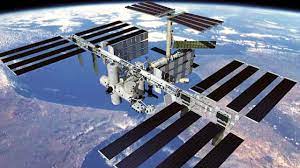
space exploration
In modern times, space exploration has become more important than ever. Beyond the romanticism of venturing into the unknown, there are other reasons why space exploration is considered for our future.
1. Advanced scientific knowledge
One of the reasons why space exploration is inevitable is scientific advancement. The universe is a huge laboratory of dynamics, providing unique conditions and celestial phenomena that cannot be reproduced on Earth. For example, space research provides insight into the possibility of extraterrestrial life.
2. Technological innovation
Space exploration is one of the factors driving technological innovation. An example is the Apollo program. This program has sparked the development of spin-off technologies in fields ranging from microprocessors to water purification systems. Companies like SpaceX and Blue Origin are pioneering reusable rocket technology and fostering innovation in aerospace engineering to benefit a variety of industries.
3. Threat Defense
When considering the future of space exploration, we must also consider catastrophes caused by celestial objects. Although the likelihood of a catastrophic asteroid impact is low, we must remain vigilant. Projects like NASA’s Near-Earth Object Observation Program track and potentially redirect dangerous asteroids to protect humanity from catastrophic events.
4. International cooperation
Space exploration transcends borders and promotes international cooperation. The International Space Station (ISS) demonstrates the ability of nations to collaborate on complex projects. This collaboration fosters not only scientific understanding, but also diplomatic ties and peaceful cooperation in a fully connected world.
5. Global advantage
Space exploration offers concrete benefits to our planet as well. Satellites in orbit provide critical data for weather forecasting, disaster management, and global communications networks. Earth observation satellites contribute to tracking climate change, monitoring deforestation, and managing resources. Additionally, research conducted in space could lead to medical Durchbrücke, such as studying bone loss associated with the treatment of osteoporosis.
6. Long-term survival
Finally, space exploration is essential to the long-term survival of humanity. Our planet is exposed to increased risks such as natural disasters, climate change, and population growth. These risks pose serious challenges to our planet. But by developing colonies on other celestial bodies and the capacity to explore different living environments, we can protect ourselves from these dangers and provide the means to secure the long-term survival of humanity.
By: Geonhwi Cho
Write and Win: Participate in Creative writing Contest & International Essay Contest and win fabulous prizes.


